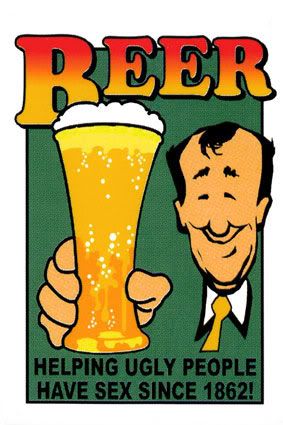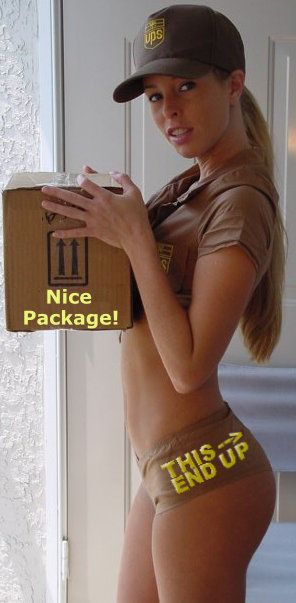
Oiled-Powered Ambition
by Mary Anastasia O'Grady *
In December 1998, former army colonel and political outsider Hugo Chávez Frias was elected president of Venezuela. His popular appeal was not hard to divine. In a country where more than 60% of the population struggled in miserable poverty, he promised to dethrone the ruling elite, end corruption and deliver justice.
Almost nine years later, Mr. Chávez is still in charge, and the government has been enriched by oil prices four times higher than in 1998, but Venezuelans still suffer terrible privation. Graft is worse than ever, and Mr. Chávez himself, who has destroyed nearly all institutional checks on his power, says that he won't step down from the presidency until 2030.
More worrisome still, Mr. Chávez has used his country's oil wealth to engage in a weapons buildup and to fund subversion in neighboring Latin American countries. His public rhetoric -- notoriously on display at the United Nations in September 2006 -- is provocatively anti-American. He has made friends with the "axis of evil," cozying up to Iran and North Korea on both the political and the economic front. Not surprisingly, he has garnered more attention from the U.S. than any Latin leader since Daniel Ortega and the days of Soviet meddling in Nicaragua.
Two books now strive to explain the Chávez phenomenon and what is often called his Bolivarian Revolution, named after Simón Bolívar, the hero of South America's struggle to win independence from Spain in the early 19th century. Mr. Chávez is promising to deliver Latin American independence again, this time supposedly from U.S. hegemony.
"Hugo Chávez," by Venezuelan journalists Cristina Marcano and Alberto Barrera Tyszka, shows that Mr. Chávez is no accidental president. For more than a decade, right under the nose of his commanding officers and the civilian government, Col. Chávez and his band of hard-left conspirators plotted rebellion. The seeds of his revolutionary fervor were planted much earlier. Young Hugo was schooled in communism in his home state of Barinas by the father of his two best friends, Vladmir (named after Lenin) and Federico (as in Engels). When he went off to the military academy in Caracas at the age of 17, he carried a copy of "The Diary of Che Guevara."
At the academy, Mr. Chávez read voraciously. "I liked Mao a lot," Ms. Marcano and Mr. Barrera Tyszka quote him saying. After he graduated, they write, "he began to make contact with recalcitrant members of the military and prominent figures of the Venezuelan Left, the most radical of whom maintained clandestine ties with the governments of Libya, Iraq, North Korea and Algeria."
The government of President Carlos Andres Pérez, elected in December 1988, gave the rebel soldiers all the justification they felt they needed to make a move. The January 1989 inauguration itself was an event so "extravagant that the press nicknamed it the coronation." It was followed, three weeks later, by the announcement of a painful economic austerity package, which touched off massive riots and looting in Caracas. On Feb. 4, 1992, Mr. Chávez and his followers initiated the coup d'état they had long yearned for, assaulting a variety of strategic locations around the country and driving a tank up the steps of Miraflores, the presidential palace.
In the end, the coup failed, but it gave Mr. Chávez a chance to unleash his charisma on the Venezuelan public in a live, nationally televised surrender speech. He came out of the whole episode a hero. When he ran for president six years later, he was a symbol of justice and courage to a demoralized population.
One of the great frustrations of President Chávez's adversaries has been his skillful use of the law -- under the guise of democracy -- to thwart his opposition. From the outset, he led the effort to rewrite the constitution with broader powers for the executive, and he later grabbed control of the national electoral council. In 2001, he proposed new powers for himself that meant, in essence, his ruling by decree. The core of his program was the destruction of property rights, the transfer of wealth from the old ruling elite to the underclass and the strangulation of the private sector. His rhetoric was filled with class-warfare militancy, but it may have been the threat to nationalize education, à la Cuba, that provoked the greatest outcry. Venezuelan society became deeply polarized.
On April 11, 2002, at least 500,000 protesters took to the streets to push back. When Mr. Chávez ordered the military to use force against them, the officer corps refused, and Mr. Chávez was unseated. But he still had ideological allies inside the military working to outmaneuver his enemies, and the chavista machine soon called its own protesters to the streets. Two days later he was restored to power, though few know exactly how it happened. Today his government is ever more authoritarian, seizing major assets (in May he took over Venezuela's last privately held oil fields), revoking the license of important opposition media and tamping down political opposition by threatening the employment of those who oppose him. More and more, Mr. Chávez's Venezuela resembles Perón's Argentina -- if not the China of Mao, whom Mr. Chávez once so admired.
Ms. Marcano and Mr. Barrera Tyszka have compiled an impressive amount of facts, and they give a reliable narrative of events up to 2004 -- when their book first appeared, in Spanish. (They have written an epilogue for this English-language edition, intended to take us through December 2006.) But their analysis is weakened by a tendency to balance criticism of Mr. Chávez with what they see as compensating judgments.
Yes, we read about the rampant corruption under chavismo, the crackdown on civil liberties and the ailing economy. But we are also told, for instance, that Mr. Chávez has enormous appeal in the Bronx, where he has provided subsidized heating oil -- as if such "generosity" offsets his destruction of Venezuelan freedoms. The authors also blame failed "neo-liberal economic policies" (meaning free-market policies) and the "increasing inequality they brought about" for the popularity of left-wing extremism in Latin America. But with the exception of Chile, Latin America has never really enjoyed free-market economics. Rather its model has been corporatism with some half-measures, like Mr. Pérez's austerity package.
Amazingly, Ms. Marcano and Mr. Barrera Tyszka write that "in Washington, after more than five years of verbal attacks, people realize that Hugo Chávez is not as evil as he seems." If this was true in the 2004 -- and I doubt it -- it is certainly no longer true. If anything, Mr. Chávez is viewed today as more dangerous than ever, by other Latin American countries as well as by the U.S.
For Bart Jones, in "¡Hugo!," evil has nothing to do with it: Mr. Chávez is a force for good. Mr. Jones's chronicle is a sustained homage to Mr. Chávez and his brand of authoritarianism. By Mr. Jones's lights, Cuba has "excelled" at health care and performed wonders in education, and Mr. Chávez's efforts to import the Cuban model are admirable. Chávez social programs are improving the lives of the Venezuelan poor. His habit of confiscating property and nationalizing businesses is merely the best way of making the country more just and prosperous. As for all the tinkering with Venezuela's constitution, Mr. Chávez has not consolidated power any more than has George W. Bush, who after all nominated two Supreme Court justices.
In Mr. Jones's opinion, members of a powerful anti-Chávez clique, with at least tacit U.S. approval, engineered the removal of the president in April 2002. They set up snipers, fired on the crowd and used the violence that followed as a pretext for unseating Mr. Chavez. The right-wing American press then gave a distorted version of events, portraying it as a genuine populist uprising. I have written about Mr. Chávez in the Journal in recent years, and Mr. Jones calls me a "rabid" anti-Chávez critic. But he lists plenty of others who have supposedly judged Mr. Chávez unfairly, including Madeleine Albright and the editors of the New York Times.
Whatever else Hugo Chávez may be, he is the product of his country's troubled recent history. For more than two decades before he came to power, Venezuela's oil wealth was in the hands of the state. As such, it was a corrupting force, channeling money and power to political favorites and corrupt oligarchs. Little surprise, then, that Venezuela's democracy collapsed under such an arrangement and that an egomaniacal military officer schooled in communist ideology stepped into the breach. Whether Mr. Chávez's opponents, since then, have learned anything about the importance of limited government remains to be seen.















No comments:
Post a Comment